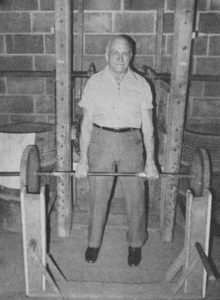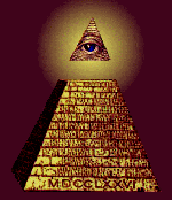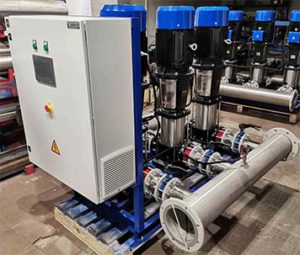Could you have a low testosterone level?
 Testosterone is a hormone produced by the testicles. It is important for a man’s sexual desire and physical appearance. Certain conditions, medications or injuries can lead to low testosterone levels. Testosterone levels also naturally decrease with age. A low testosterone level can affect sexual desire, mood, and changes in muscles and fats.
Testosterone is a hormone produced by the testicles. It is important for a man’s sexual desire and physical appearance. Certain conditions, medications or injuries can lead to low testosterone levels. Testosterone levels also naturally decrease with age. A low testosterone level can affect sexual desire, mood, and changes in muscles and fats.
Testosterone therapy treatment can help reduce symptoms.
Alternative names
Male menopause; andropause; Testosterone deficiency Low testosterone; Androgen deficiency in humans with age; Late-onset hypogonadism
How testosterone affects your health
Testosterone makes a man look and feel like a man. In men, this hormone helps:
● Keep bones and muscles strong
● It determines the growth of hair and the location of fat in the body
● Making sperm
● Maintaining sexual trenbolone acetate desire and erections
● Making red blood cells
● It increases energy and improves mood
Causes of a low testosterone level
From 30 to 40 years old, the testosterone level may begin to slowly decrease. This happens naturally.
Other causes for a low testosterone level include:
● Side effects of medications, such as chemotherapy
● Testicular injury or testicular cancer
● Problems with the brain glands (hypothalamus and pituitary gland) that control hormone production
● Bad thyroid function
● Excess body fat (obesity)
● Other ailments, diseases, medical treatments or infections
symptoms
Some men who have low testosterone levels have no symptoms. Others may present:
● Lack of sexual desire
● Erection problems
● Low sperm count
● Sleep disturbances, such as insomnia
● Decreased strength and muscle size
● Bone loss
● Increase in body fat
● depression
● Difficulty concentrating
 Some symptoms can be a normal part of aging. For example, it’s normal to feel less interested in sex when you get older. However, it is usually not normal to have no interest in sex.
Some symptoms can be a normal part of aging. For example, it’s normal to feel less interested in sex when you get older. However, it is usually not normal to have no interest in sex.
Symptoms can also be caused by other conditions, such as hypertension or diabetes. If any of these symptoms bother you, talk to your doctor.
Treatment options
Your provider will likely ask you to take a blood test to check your testosterone level. They will also check you for other causes that explain your symptoms. These include side effects from medications, thyroid problems or depression.
If you have a low testosterone level, hormone therapy can help. The drug used is a synthetic form of testosterone. This treatment is called testosterone replacement therapy or TRT. This can be administered as a gel, patch, injection or implant.
TRT can relieve or improve symptoms in some men. It can keep bones and muscles strong. It appears to be most effective in young people with very low testosterone levels. This therapy can also be useful for older men.
Male menopause; andropause; Testosterone deficiency Low testosterone; Androgen deficiency in humans with age; Late-onset hypogonadism
How testosterone affects your health
Testosterone makes a man look and feel like a man. In men, this hormone helps:
● Keep bones and muscles strong
● It determines the growth of hair and the location of fat in the body
● Making sperm
● Maintaining sexual desire and erections
● Making red blood cells
● It increases energy and improves mood
Causes of a low testosterone level
From 30 to 40 years old, the testosterone level may begin to slowly decrease. This happens naturally.
Other causes for a low testosterone level include:
● Side effects of medications, such as chemotherapy
● Testicular injury or testicular cancer
● Problems with the brain glands (hypothalamus and pituitary gland) that control hormone production
● Bad thyroid function
● Excess body fat (obesity)
● Other ailments, diseases, medical treatments or infections
symptoms
Some men who have low testosterone levels have no symptoms. Others may present:
● Lack of sexual desire
● Erection problems
● Low sperm count
● Sleep disturbances, such as insomnia
● Decreased strength and muscle size
● Bone loss
● Increase in body fat
● depression
● Difficulty concentrating
Some symptoms can be a normal part of aging. For example, it’s normal to feel less interested in sex when you get older. However, it is usually not normal to have no interest in sex.
Symptoms can also be caused by other conditions, such as hypertension or diabetes. If any of these symptoms bother you, talk to your doctor.
Treatment options
Your provider will likely ask you to take a blood test to check your testosterone level. They will also check you for other causes that explain your symptoms. These include side effects from medications, thyroid problems or depression.
If you have a low testosterone level, hormone therapy can help. The drug used is a synthetic form of testosterone. This treatment is called testosterone replacement therapy or TRT. This can be administered as a gel, patch, injection or implant.
TRT can relieve or improve symptoms in some men. It can keep bones and muscles strong. It appears to be most effective in young people with very low testosterone levels. This therapy can also be useful for older men.
TRT carries risks. These can include:
● infertility
● Enlarged prostate which leads to difficulty urinating
● Blood clots
● Worsening heart failure
● Difficulty sleeping
● Cholesterol problems
At this point, it is not clear whether TRT increases the risk of heart attack, stroke or prostate cancer.
Talk to your provider to find out if this therapy is the best for you. If you don’t notice any change in symptoms after three months of treatment, this therapy is unlikely to be effective for you.
If you decide to start with TRT, be sure to visit your provider for regular checkups.
When to call the doctor
Call your provider if:
● They have low testosterone symptoms
● You have questions or concerns about the treatment








